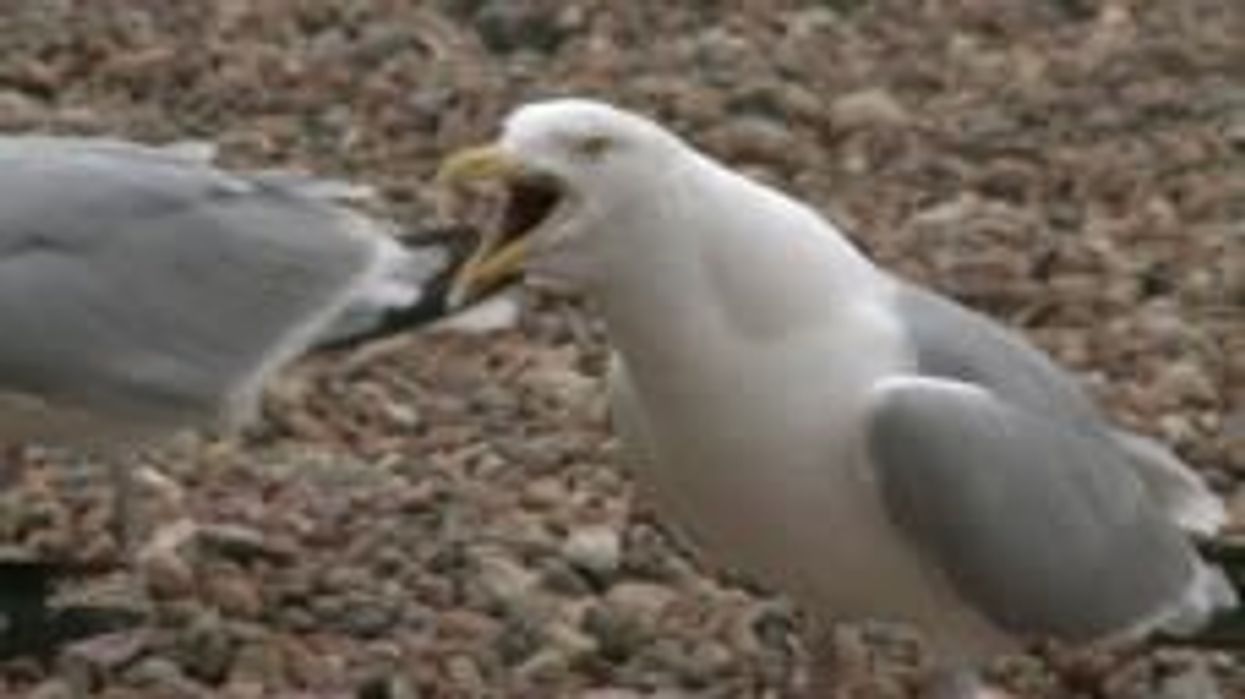Kate Plummer
May 24, 2023
Seagulls terrorise British holidaymakers
content.jwplatform.com
Anyone who has braved a stroll along England's coastline will be aware of seagulls' tyrannical regime.
They prey on people eating chips, they swoop down on unsuspecting holidaymakers licking an ice cream, and they can be quite aggressive indeed.
And now, terrifying research has revealed that they are more calculating than you may have previously thought.
A University of Sussex study on herring gulls at Brighton beach found that the birds choose what to eat by watching what humans are enjoying.
Scientists taped green (salt and vinegar) and blue (cheese and onion) packets of Walkers crisps to tiles and placed them a few metres from gulls on Brighton beach and filmed the birds’ behaviour from a distance. In some cases, the researchers ate from one of the bags of crisps.
When the scientists didn't eat, less than a fifth of gulls approached the crisp packets placed nearby.
But when the researchers were snacking on crisps, 48 per cent of the birds came to check out the packets. Nearly 40 per cent of such approaches ended with gulls pecking at the crisp packets, and of these, 95 per cent were directed at the same colour packet as the scientist was eating from.
Sign up to our free Indy100 weekly newsletter
“We’ve shown that adult gulls are able to pay attention to the behaviour of humans and apply that to their own foraging choices,” said Franziska Feist, a biologist and first author on the study.
“Given that the urbanisation of gulls is very recent, this ability must come from the gulls’ general smartness and behavioural flexibility.”
“It is likely that simply deterring the public from directly feeding gulls may not be enough,” Feist said. “They are still able to observe what we eat and that would inform their ability to target waste, litter and so on.”
Dr Madeleine Goumas, an expert on herring gulls at Exeter University who was not involved in the study, said: “We already know from previous research that gulls use information from people when they’re searching for food.
“This study shows that we aren’t only drawing gulls’ attention to where food is, but they also learn about the type of food we’re eating. Knowing this may have implications for how we reduce negative interactions between humans and gulls, as we seem to be inadvertently teaching gulls to exploit new food items.”
Meanwhile, past alarming research revealed that gulls prefer food that has been touched by people.
Overall, it's giving Alfred Hitchcock's The Birds.
Have your say in our news democracy. Click the upvote icon at the top of the page to help raise this article through the indy100 rankings.
Top 100
The Conversation (0)














